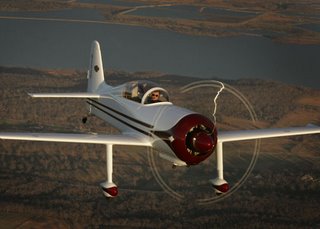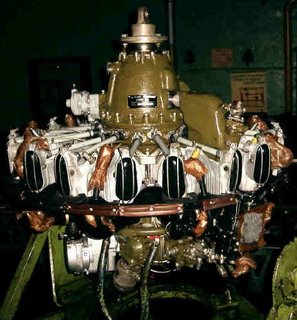
It's called a Radial Rocket. I saw it at Oshkosh last year and thought it one of the most beautiful planes there, but thought it was a one-off custom build. Nope, it's a kit, and it's priced simliar to the F1 Rocket. It uses a 360hp Russian-built M-14P 9 cylinder radial that costs less than the 260hp Lycoming used by the F1 Rocket and the RV-10.

It's a glass kit (as opposed to sheet metal) and I am not at all familiar with working with glass, so that's one reason I can use to get this thing out of my head (although it means that I will have to religously avoid gaining any knowledge whatsoever about glass plane construction) and get back to something more practical.
Still, it's one fine looking plane!

I'll help. From the preflight section on the RR:
ReplyDelete"As the prop is rotated, it will become immediately apparent if one or more of the lower cylinders is filled with oil. An oil filled cylinder must be cleared before engine start, by removal of a spark plug."
Remove spark plugs during pre-flight? Nah...
Does it sound like a big old round motor too? 'Cause if it does - removing sparkplugs on preflight or not - that's all I'd need...
ReplyDeleteNothing but nothing sounds as good as a smooth running round motor...
Yep, it has the sound and everything. The plane hangared across from mine is a Yak with the same engine, and I can always here him coming in to land if I'm sitting on my front porch, which is right off the end of the runway. It's a very distinctive sound! The start-up sound is just as cool: blup blup bang blup blup bang blup purrrrrrr.
ReplyDeleteThat spark plug thing is very rare, although you do have to pull a few blades through prior to cranking to make sure oil hasn't leaked past the rings in the lower cylinders. That could cause hydraulic lock, and cranking the engine would cause a whole lot of expensive damage. I looked around on the internet and saw that the conventional wisdom is that it takes a couple of months of inactivity for that leakage to happen, though.